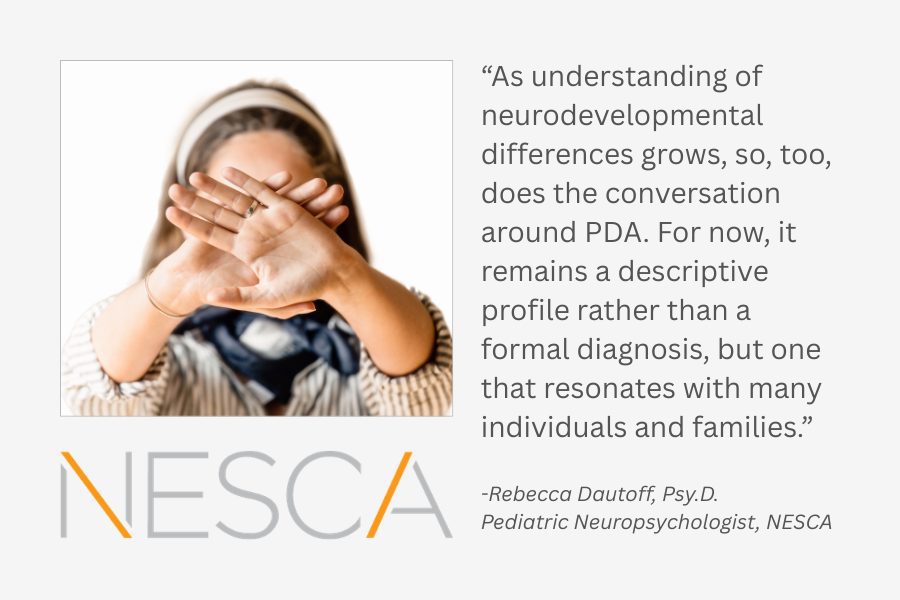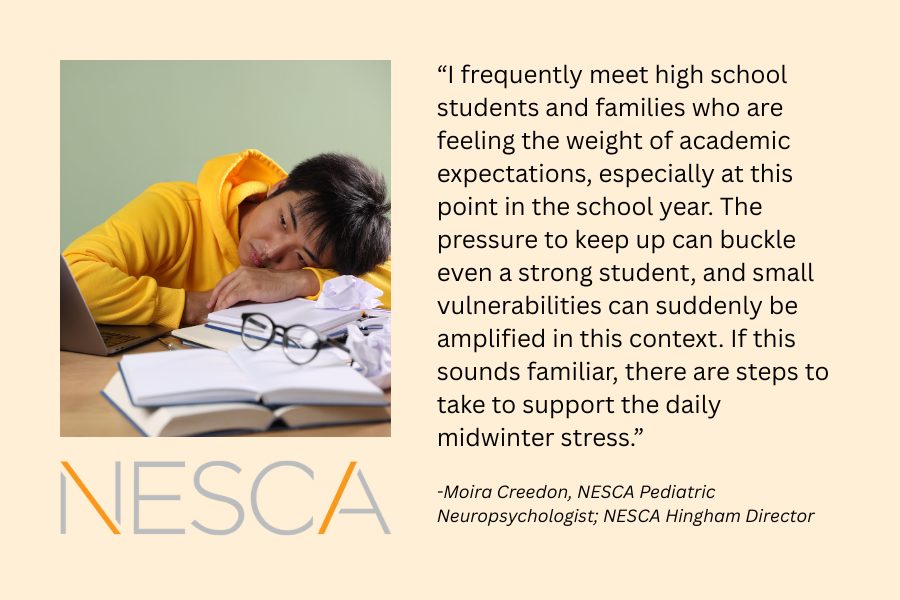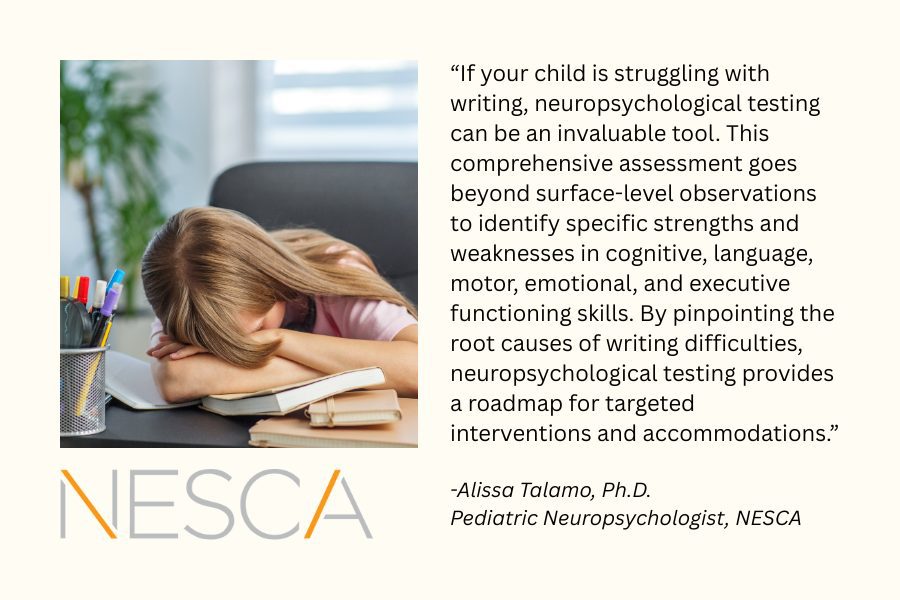
 By Leah Weinberg, Ph.D.
By Leah Weinberg, Ph.D.
Pediatric Neuropsychologist, NESCA
Understanding the Gap Between Intelligence and Performance
“I know my child is smart.” This is something parents sometimes say to me with both confidence and confusion.
During intake meetings, parents describe their children to me as being able to grasp complex ideas, ask thoughtful questions, and often seem to understand more than their schoolwork shows. Yet school feels harder than it should. Assignments take too long, work is inconsistent, focus slips under pressure, and emotions rise quickly when tasks become demanding.
Over time, a gap becomes visible where intelligence is clear, but performance does not consistently reflect it. Understanding that gap requires looking beyond intelligence alone.
Intelligence Is Only Part of the Picture
Intelligence reflects the ability to reason, understand concepts, and make connections. It is an important foundation.
Performance reflects how intelligence interacts with other essential skills, such as attention, language, memory, organization, emotional control, and follow-through. When one or more of these areas is strained, a child may know the material yet struggle to show it consistently.
Sometimes attention drifts. Sometimes reading or writing requires more effort than it appears. Sometimes instructions are harder to hold in mind. Sometimes frustration rises quickly when work feels open-ended. Often, it is not one issue. It is the interaction among several of these areas.
Intelligence and performance are not the same thing.
Why It Often Becomes More Noticeable Over Time
In the early years, structure is built in, tasks are shorter, and teachers provide frequent guidance. As children grow older, expectations shift, and assignments become longer and less structured. Organization is assumed, and independence is expected. As demands increase, underlying vulnerabilities become harder to compensate for. The child’s intelligence has not changed, but the demands have.
What Happens When Demands Rise
Academic tasks require coordination. A child must sustain attention, organize ideas, remember instructions, manage frustration, and monitor accuracy – often at the same time. When any part of that system is stretched, patterns shift, work slows down, mistakes increase, focus drops, frustration intensifies, and often voidance or shutdown follows.
These reactions are not signs of limited ability; they are often signs that demands are exceeding capacity in one or more areas. That distinction matters. It shifts the question from “Why aren’t they trying?” to “What is making this harder right now?”
When Structure Helps…and When It Doesn’t
Some children appear steady in structured settings but struggle during independent work. External support can temporarily reduce strain. But when that support is reduced, inconsistencies become more visible. Without context, this can feel confusing; however, with a broader understanding, it often makes sense.
A Broader View
Looking only at intelligence can leave the picture incomplete. Considering how intelligence interacts with attention, learning processes, language, emotional patterns, and self-management brings greater clarity. Children and students are not simply performing or underperforming. Instead, they are navigating a complex interaction of strengths and vulnerabilities within changing demands. Understanding that interaction allows parents and educators to respond with greater clarity and thoughtfulness.
My Approach
In my work with children, teens, and families, I focus on integration. I consider how different aspects of a child’s profile – from cognitive strengths to patterns of attention and emotional response – all come together within the real demands of school and daily life.
My goal is not to simplify difficulty to a single cause, but to clarify patterns. When these interactions are understood, conversations shift. Blame decreases, and direction becomes clearer.
Clarity does not eliminate challenges. It does, however, replace confusion with understanding, which helps adults respond in ways that are steadier, more precise, and better aligned with their child or student.
About the Author
Dr. Weinberg specializes in the assessment of school-aged children and adolescents with a wide range of concerns including development disorders, such as autism spectrum disorder, learning disabilities (e.g. dyslexia, dysgraphia), language-based learning difficulties, Attention Deficit Hyperactivity Disorder (ADHD), Nonverbal Learning Disability (NVLD), and executive functioning disorders (e.g. slow processing speed). She also has experience in working with individuals with psychiatric difficulties, such as anxiety, mood disorders (e.g. depression), and behavioral disorders. Dr. Weinberg has expertise in working with children with complex profiles or multiple areas of strength and weakness that cannot be encapsulated by a single diagnosis. Dr. Weinberg is passionate about helping families better understand their child’s neuropsychological profile and the impact it may be having on their behavior or functioning in order to best support them in all areas of their life.
Deficit Hyperactivity Disorder (ADHD), Nonverbal Learning Disability (NVLD), and executive functioning disorders (e.g. slow processing speed). She also has experience in working with individuals with psychiatric difficulties, such as anxiety, mood disorders (e.g. depression), and behavioral disorders. Dr. Weinberg has expertise in working with children with complex profiles or multiple areas of strength and weakness that cannot be encapsulated by a single diagnosis. Dr. Weinberg is passionate about helping families better understand their child’s neuropsychological profile and the impact it may be having on their behavior or functioning in order to best support them in all areas of their life.
To book a neuropsychological evaluation with Dr. Weinberg or another expert neuropsychologist at NESCA, complete NESCA’s online intake form.
NESCA is a pediatric neuropsychology and related services practice with offices in Newton, Plainville, and Hingham, Massachusetts; Londonderry, New Hampshire; and Coral Gables, Florida, serving clients from infancy through young adulthood and their families. For more information, please email info@nesca-newton.com or call 617-658-9800.



 and young adults who have complex presentations with a wide range of concerns, including attention deficit disorders, psychiatric disorders, intellectual disabilities, and autism spectrum disorders (ASD). She also values collaboration with families and outside providers to facilitate supports and services that are tailored to each child’s specific needs.
and young adults who have complex presentations with a wide range of concerns, including attention deficit disorders, psychiatric disorders, intellectual disabilities, and autism spectrum disorders (ASD). She also values collaboration with families and outside providers to facilitate supports and services that are tailored to each child’s specific needs.
 is interested in uncovering an individual’s unique pattern of strengths and weaknesses to best formulate a plan for intervention and success. She tailors each assessment to address a range of referral questions, such as developmental disabilities, including Autism Spectrum Disorder, learning disabilities, attention challenges, executive functioning deficits, and social-emotional struggles. She also evaluates college-/grad school-age/adult individuals with developmental issues, such as ASD and ADHD, particularly when there is a diagnostic clarity or accommodation question.
is interested in uncovering an individual’s unique pattern of strengths and weaknesses to best formulate a plan for intervention and success. She tailors each assessment to address a range of referral questions, such as developmental disabilities, including Autism Spectrum Disorder, learning disabilities, attention challenges, executive functioning deficits, and social-emotional struggles. She also evaluates college-/grad school-age/adult individuals with developmental issues, such as ASD and ADHD, particularly when there is a diagnostic clarity or accommodation question.
 Boston area since 2006. He specializes in the assessment of children and adolescents who present with a wide range of developmental conditions, such as Attention-Deficit/Hyperactivity Disorder, Specific Learning Disorder (reading, writing, math), Intellectual Disability, and Autism Spectrum Disorder; as well as children whose cognitive functioning has been impacted by medical, psychiatric, and genetic conditions. He also has extensive experience working with children who were adopted both domestically and internationally.
Boston area since 2006. He specializes in the assessment of children and adolescents who present with a wide range of developmental conditions, such as Attention-Deficit/Hyperactivity Disorder, Specific Learning Disorder (reading, writing, math), Intellectual Disability, and Autism Spectrum Disorder; as well as children whose cognitive functioning has been impacted by medical, psychiatric, and genetic conditions. He also has extensive experience working with children who were adopted both domestically and internationally.





 With NESCA since its inception in 2007, Dr. Talamo had previously practiced for many years as a child and adolescent clinical psychologist before completing postdoctoral re-training in pediatric neuropsychology at the Children’s Evaluation Center.
With NESCA since its inception in 2007, Dr. Talamo had previously practiced for many years as a child and adolescent clinical psychologist before completing postdoctoral re-training in pediatric neuropsychology at the Children’s Evaluation Center.
 research and academia for over 30 years. She is a national consultant and speaker on program design and the inclusion of children and adolescents with special needs, especially those diagnosed with Autism Spectrum Disorder (ASD). Prior to joining NESCA, Ms. Lucci was the Principal of the Partners Program/EDCO Collaborative and previously the Program Director and Director of Consultation at MGH/Aspire for 13 years, where she built child, teen and young adult programs and established the 3-Ss (self-awareness, social competency and stress management) as the programming backbone. She also served as director of the Autism Support Center. Ms. Lucci was previously an elementary classroom teacher, special educator, researcher, school psychologist, college professor and director of public schools, a private special education school and an education collaborative.
research and academia for over 30 years. She is a national consultant and speaker on program design and the inclusion of children and adolescents with special needs, especially those diagnosed with Autism Spectrum Disorder (ASD). Prior to joining NESCA, Ms. Lucci was the Principal of the Partners Program/EDCO Collaborative and previously the Program Director and Director of Consultation at MGH/Aspire for 13 years, where she built child, teen and young adult programs and established the 3-Ss (self-awareness, social competency and stress management) as the programming backbone. She also served as director of the Autism Support Center. Ms. Lucci was previously an elementary classroom teacher, special educator, researcher, school psychologist, college professor and director of public schools, a private special education school and an education collaborative.
 practicing neuropsychology for 35 years and has been director of NESCA’s Neuropsychology practice for nearly three decades, continuously training and mentoring neuropsychologists to meet the highest professional standards.
practicing neuropsychology for 35 years and has been director of NESCA’s Neuropsychology practice for nearly three decades, continuously training and mentoring neuropsychologists to meet the highest professional standards.
Connect with Us